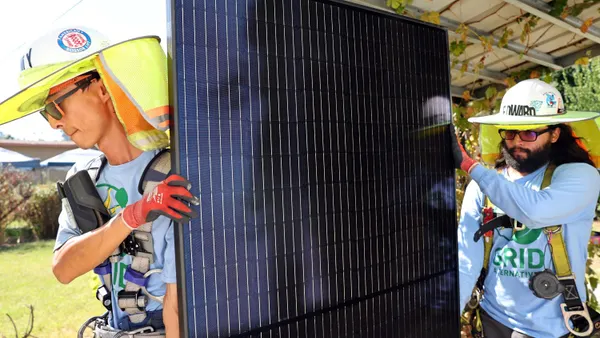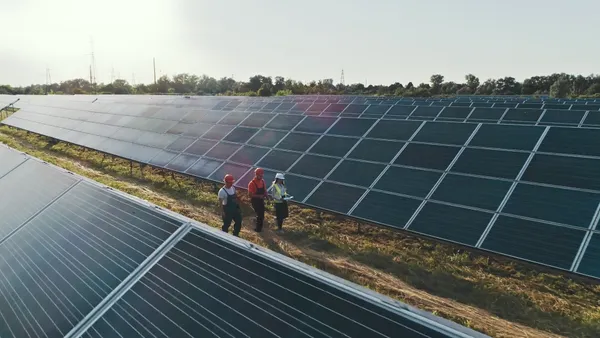Dive Brief:
- North Carolina hit the 1 GW milestone of total installed solar capacity, which now brings in $1.6 billion in revenue, according to the North Carolina Sustainable Energy Association (NCSEA).
- North Carolina is the fourth state in the country to pass the 1 GW mark, following California, Arizona, and New Jersey. The state's vibrant renewable energy policies such as the Renewable Energy and Energy Efficiency Portfolio Standard (REPS) and the Renewable Energy Investment Tax Credit (REITC), drove the growth, NCSEA says.
- Despite the numbers, the North Carolina General Assembly’s attempt to freeze the REPS is stuck in committee. Refusal to extend the state's tax credit in its newest budget could cost the state’s clean energy economy some $4.7 billion over the next 15 years.
Dive Insight:
While North Carolina hit an important milestone, according to NCSEA, the industry also hit some legislative roadblocks towards its path of integrating more renewables in the state.
NCSEA research found that North Carolina’s $2.6 billion-plus investment through the tax credit, set to expire by the end of 2015, in over 20 different renewables technologies since 2007 has had an economic impact of some $4.7 billion-plus.
Even so, the General Assembly's bid to freeze the state's Renewable Energy and Energy Efficiency Portfolio Standard (REPS) and refusal to extend the state's tax credit in its latest budget could dampen solar growth in the state.
An NCSEA spokesperson had earlier defended the benefits of the state's renewable tax credit, saying it doesn't rack up costs for ratepayers or taxpayers, and the subsequent decline in revenue for the state is actually a plus in the renewable energy's favor.
The Renewable Energy and Energy Efficiency Portfolio has saved ratepayers $162 million since 2007 and is expected to save $651 million by 2029, according to NCSEA’s "Understanding the Impact of Electric Choices on North Carolina Residential Rates and Bills."
“According to [North Carolina Utilities Commission] rate information, the average monthly residential bill is estimated by the Commission to be $107.04 and $106.67 for [Duke Energy Carolinas] and [Duke Energy Progress] customers, respectively,” NCSEA’s study reports. “Within this total, monthly REPS charges are nominal: $0.39 and $0.83 per month, respectively.”












